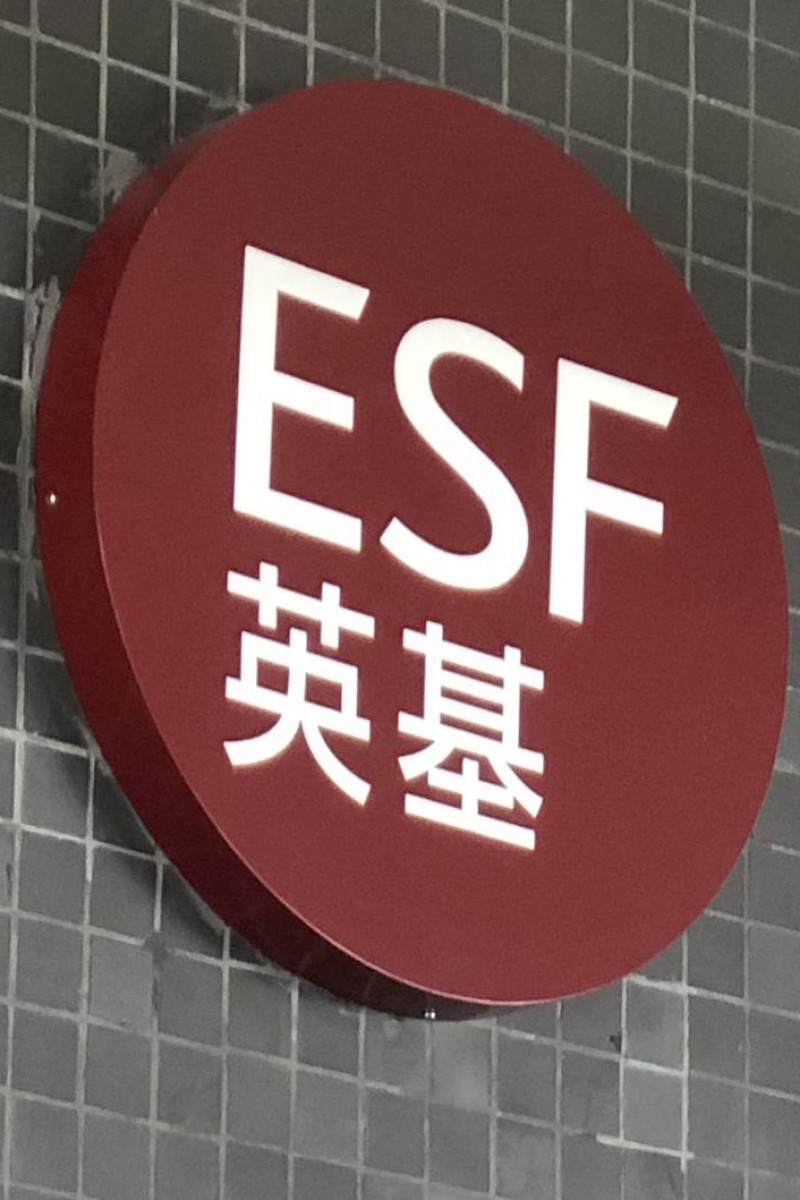
- Group was among four foreign education institutions that failed to admit the required number of non-local students for two consecutive years
- There were 25,961 successful applicants to the talent scheme as of June; 95 per cent of applicants were from mainland China
 The ESF is the largest English-language international school organisation in Hong Kong. Photo: Handout
The ESF is the largest English-language international school organisation in Hong Kong. Photo: HandoutThe largest international school group in Hong Kong has said it will offer priority in the interview process to children of workers who have arrived under a new talent scheme.
An international education consultant on Tuesday explained the English Schools Foundation (ESF) could attract more mainland Chinese students if it lowered language requirements, after the institution on Monday said it wanted to provide a dedicated pathway for new arrivals to interview for places.
“We also want to help new arrivals to our city access the very best education. The government’s Top Talent Pass Scheme is an important part of helping Hong Kong recover from the difficulties of the past few years – and we are delighted to be able to support it by adding it to our list of priority interview categories,” said Rob Shorthouse, director of communications at the ESF, referring to the government recruitment drive launched last December.
Hong Kong starts new school year after scramble to repair typhoon-damaged campuses
The group was among four foreign education institutions that failed to admit the required number of non-local students for two consecutive years as the Covid-19 pandemic gripped the city, prompting a warning from authorities earlier this year.
Interview priority at the ESF is also available to applicants who have purchased “nomination rights” at HK$500,000 per pupil, children of full-time teaching or support staff, siblings of students enrolled at one of the schools, children of alumni and elite athletes.
Ruth Benny, founder of Top Schools, an international school consultancy in Hong Kong specialising in helping expatriates, said it was still too early to say whether the new move would drive up the number of students from the mainland studying at the ESF.
“If ESF lowers the English-language requirement, the student composition may change significantly,” she said, as she did not expect many of the children joining their parents under the new talent scheme to meet the current standards.
Benny said she expected the move was intended to respond to the growing demand from mainland parents, despite the possible language hurdle.
She was not aware whether other international schools had made similar moves, as most were still targeting children from overseas, she said.
Hong Kong schools cut more than 80 Primary One classes for new academic year
About 95 per cent of applicants under the Top Talent Pass Scheme were from the mainland as of June. Candidates must have earned no less than HK$2.5 million over the past 12 months or be graduates from one of the world’s top 100 universities who have worked for three of the past five years. Workers who graduated from those universities in the past five years but who had less than three years of experience could also apply, subject to an annual cap of 10,000 candidates.
Successful applicants are allowed to bring their spouses and children to settle in Hong Kong.
There were 25,961 successful applicants to the talent scheme as of June, and 22,751 related dependant visas were issued, according to the Immigration Department.
The ESF is the largest English-language international school organisation in Hong Kong. It has 22 schools covering kindergarten, primary and secondary levels, with over 18,000 students from more than 75 countries.